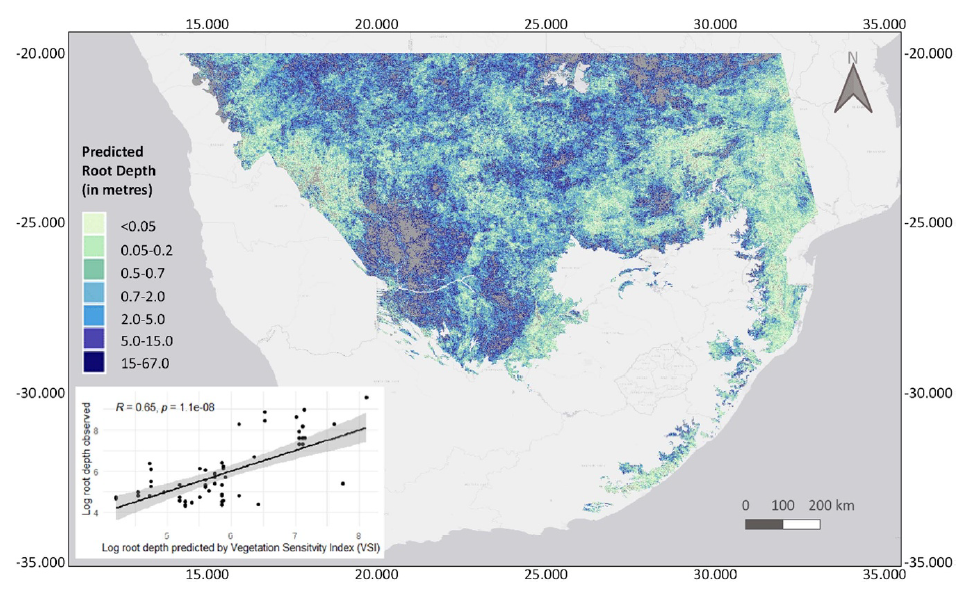Environment & Development in Latin America
July 4, 2014
Meredith Root-Bernstein writes about a stimulating interdisciplinary exchange focused on student research in Latin America.
On June 6, 2014, I had the pleasure of attending and presenting at the Environment and Development in Latin America graduate research seminar held at the Oxford Department of International Development. It was a nice opportunity for MPhil and DPhil students and postdocs to share their research and reflect on its shared contexts. The range of topics and methodologies was impressively broad, from ethnography to network analysis, from a focus on workers’ wages in the ethanol sector to predictors of tropical forest regeneration.
One theme that came out of the morning session, in which I presented, was the value of using historical and traditional practices as inspiration for conservation approaches today. The discussant Masooda Bano asked us why we should look to the past if past practices might have died out due to inefficiencies. A member of the audience also asked why we were intent on finding solutions from within indigenous cultures when cultural exchange has been a feature of human civilization forever. As Daniel Cooper’s talk on the Araruya people suggested, syncretic cultures can sometimes be quite robust. However, this example as well as the examples of resurrected practices that Claudia Comberti and I discussed, is against the backdrop of massive exogenous threats to socio-ecological systems in the form of colonialism. We argued that if the historical systems we were interested in had failed, it was not for endogenous reasons. Additionally, in all our case studies, and as highlighted by Daniel Cooper’s ethnographic approach, local knowledge and practices are contextual and rooted in the local ecology, which is an invaluable source of understanding that we need to attend to when assessing conservation interventions and potential outcomes. Tahia Devisscher’s use of quantitative methods to assess conceptual relationships and conservation scenarios regarding different uses of fire highlighted that there are many ways to communicate these findings, which may be useful when talking to policy makers.
The second theme that emerged in the afternoon was the importance of resurrecting area studies as an approach to doing interdisciplinary work at the conservation-development juncture, as suggested by Rosemary Thorp, Emeritus Fellow at the Latin American Centre. Area studies group researchers geographically rather than by methodology or speciality, and provide an obvious matrix on which to build potential exchanges of information and collaborative projects. The afternoon highlighted issues of governance, REDD+, smallholder behaviour and forest regeneration, human welfare and social reform, and citizen protest movements against the energy sector. All of these issues, though focused on the social side, intersect with questions of conservation vs. development, and indeed several of the presenters wished they had had time, either in their degree projects, or in their presentations, to delve more into both the social and ecological sides of their issues. Hopefully more students can be encouraged to do integrated socio-ecological research in the future, so that they will learn by doing when in comes to interdisciplinarity.
Details of the seminar can be found here
Latest News
Vector Atlas Engagement and Partnership Meeting, December 2022

The Vector Atlas team is looking forward to welcoming representatives from over 15 African countries to the first Engagement and Partnership Meeting to be held at the International Centre ... Continue reading
Seeing roots from space

A new study led by Dr Nicola Kühn during her DPhil associated with the lab titled “Seeing roots from space: aboveground fingerprints of root depth in vegetation sensitivity to ... Continue reading
Vector Atlas Spatial Modelling Workshop, November-December 2022
We are excited to be holding the Vector Atlas Species Distribution Modelling Training Course at the International Centre of Insect Physiology and Ecology (icipe) in Nairobi, Kenya, 30 November ... Continue reading
Vector Atlas at the 8th Annual PAMCA conference

The Vector Atlas team had a great time at the 8th Annual Pan-African Mosquito Control Association (PAMCA) conference held in Kigali, Rwanda, from 26 to 28 September 2022. Excellent ... Continue reading
Vector Atlas Kick-off Meeting

The international Vector Atlas team gathered at the International Centre of Insect Physiology and Ecology (icipe) Duduville campus in Nairobi from 4 to 8 July 2022 to celebrate the launch ... Continue reading
